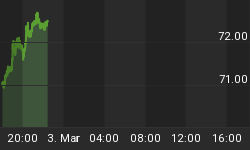Money, money, money. The world's got so much of it now - 8% more than a year ago and 40% more than it had five years ago - that finding a place to park it for decent returns gets tougher by the day.
So it's no surprise that, every day, the rate at which investors chop and change their investments is rising too. Measured by the derivatives market, it rose by nearly one quarter in the year to September. Most spectacular has been the rise of cross-border and currency transactions.
Daily turnover in the foreign exchange market rose 38% in the year to April '06. It's doubled since 2001, according to International Financial Services in London. Global trade only accounts for a tiny portion of these flows, as little as 1% on some estimates. That puts cold-hearted speculators in the frame for driving this $2.7 trillion per day market - and that poses a threat to financial stability. For the masters of our financial universe can empty a country's currency reserves in a matter of weeks, triggering economic crises such as Mexico in 1994...Russia in 1998...Brazil in 1999...Turkey in 2000...and Argentina in 2001.
Or rather, that used to be the case. Now central bankers face the risk of getting too foreign money instead of not enough. It might seem a nice problem to have. But a currency buoyed by "hot money" hurts export sales on the way up, before risking higher inflation and interest rates on the way down.
Witness the rise, fall and breakneck volatility of the Icelandic Koruna. Pushing the US Dollar from ISK1.04 down to ISK0.59 in the three years to March 2005, the Koruna has since lost a quarter of its value as the "hot money" got out.
Or take the New Zealand Dollar. Go on, please - take it! Sucking in foreign investors with the highest interest rates offered by any developed economy, the NZD reached a 23-year high in late 2005. By this April, however, it had sunk by one-fifth.
How come? "Current account deficits matter over time," as Lehman Brothers noted of the Pound Sterling last week. But hot money matters more - in the short-term at least. New Zealand has the largest trade deficit of any developed country. Yet the Kiwi Dollar has rebounded 15% since the spring. The finance minister, Michael Cullen, calls it "irrational". He recently told the Financial Times that "I think someone would have to be slightly strange to take a bet on the NZ dollar right now...Our current account deficit [is] approaching 10% [but] the market is not factoring it in."
More irrational still, however, is the way policy wonks from Ankara to Auckland might be tempted to stem the flood of inward investment. On Tuesday, the Thai central bank said it would charge foreign investors a 10% penalty if they withdrew their money inside 12 months. So foreign investors simply chose to withdraw their cash within minutes instead. The stock market in Bangkok closed the day $23 billion lighter at a price last seen in 1990.
The Thai government has now stepped in and said it will exempt stock market investors from the new penalty. But it's Thai bonds and cash deposits that have attracted the bulk of hot money. And the new exchange controls are going to remain in place for fixed-income investors still trying to clip coupons and make a few quid in the relentless search for ever-shrinking yield.
Some 100 billion baht ($2.8 billion) of short-term foreign funds flowed into Thailand in the three weeks to Dec.15 - mostly into bonds and debt securities. "We can't allow the inflow of large short-term overseas funds to continue," said Pridiyathorn Devakula, the Thai Finance Minister at a press conference Tuesday. "Excessive inflows of short-term money are damaging the economy, baht and stock market in the long term."
If she's serious though, then she's got a job of work left to do. For in our world of paper-thin yields, Dollar and Yen rates can't compete with the coupons paid on emerging market debt. The Baht has risen by 14% this year so far. It dropped only 1.5% on Tuesday when the Bangkok stock market tanked. On Wednesday, the SET rebounded by more than 10%. The Baht ticked higher from Tuesday's low.
"The crisis, if that is what it should be called, is in fact the mirror image of what happened in the late 1990s," notes Jeremy Warner for The Independent in London. Central bankers used to worry that foreign speculators would send their currency plunging if the Dollar peg wasn't maintained. So they squandered billions from their currency reserves defending fixed exchange rates. "Unfortunately," says Warner, "their reserves were no match for the George Soroses of this world and the endeavour ended in tears."
Now the policy wonks face hot money inflows, and foreign investors are like a ball and chain in the race to devalue currency prices. Amid the torrent of cheap money, a rising exchange rate might help to keep interest rates and inflation low. But emerging economies such as Thailand, Turkey and Vietnam care most about export-led growth. The "Great Stability" enjoyed by America and Europe can wait.
It's not just Thailand and the emerging world that's at risk from hot money today, however. Both Britain and the United States are also at the mercy of foreigners parking their money in short-term deposits and bonds. The excess of foreign claims on US assets over American-owned assets overseas reached $6 trillion in the third quarter, notes Paul Kasriel of Northern Trust. Britain's net liabilities have risen more than 20 times over since 1981. The UK's shortfall on its international investment position is now equivalent to 15% of GDP.
If the hot money's not welcome in Thailand, the US and Britain will take it. They need it! But remember - current account deficits matter over time. Neither Sterling nor the Dollar can defy gravity forever.
















